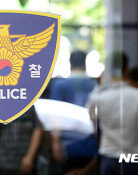For UN Chief Kim, Life Is on Schedule
Kim Hak-Su (68), the Executive Secretary of the Economic and Social Commission for Asia and the Pacific (ESCAP), showed no signs of fatigue though he merely slept about three hours during the flight from Bangkok to Seoul on June 14. He has managed his tight schedule on a minute to minute basis for the last six years.
His eyes lightened up when he talked about the Training Centre for Information and Communications Technology (APCICT), whose opening is due on June 16 in the Free Economic Zone in Songdo, Incheon.
APCICT was established by the ESCAP to promote economic development in the region. The center, which is the first UN agency established in Korea, will train 120 IT workers every year.
During the selection process, Korea encountered opposition from five ESCAP members, including Japan and India, but garnered support from eight other countries, including Uzbekistan, Bangladesh, Mongolia and North Korea.
Finally, during the ESCAP general assembly in last May, member countries unanimously agreed with Koreas establishing the center. Mr. Kim is also UN Undersecretary General, which is third in the line of succession at the UN following the Secretary General and Deputy Secretary General.
Although ESCAP headquarters is located in Bangkok, he spent 176 days on the road last year, visiting member countries and attending international conferences, lectures, five ESCAP sub-regional meetings and UN headquarters meetings
Kim gets up at 4:30 in the morning and leaves home at about five. After walking 4km for 45 minutes, he goes to work. Following a 7:30 a.m. meeting, he meets around 7080 people until 4:00 p.m. when his working hour ends. He has a 900-won bowl of noodles in the cafeteria for lunch. After work, he goes to a gym to walk another 4km. The Executive Secretary said with smile on his face, How can I carry out my job without good health and passion?
In fact, his father wanted his son to be a doctor while Kim wanted to be an economist. After studying Economics at Yonsei University, he began his career as a central bank economist. Since then, he hoped to be the governor of the Bank of Korea or the minister of finance. He earned a masters degree from Edinburgh University, the UK, and a Ph.D. in economics from the University of South Carolina.
After school, he joined Daewoo Corporation as Executive Director. At that time, he felt frustrated by the fact his knowledge found no use as he had to spend most of his time entertaining buyers and drinking.
When Kim began more and more frustrated, he got a call from his friend who was working for the World Bank. The friend said UN was looking for someone who should hold a Ph.D in economics, had work experience in government or a private company, and someone not British or French. You are perfect for the job, he said.
In 1981, as Chief Economic Planning Officer of UNDP, he worked in South Pacific island state countries such as Vanuatu and the Solomon Islands for eight years. Then, he served as the first Asian Director General of the Colombo Plan, an intergovernmental aid organization for Asia and the Pacific. Since 2000, he served as the two-year Executive Director of ESCAP for three consecutive terms.
He said, Korea should exercise more diplomatic and political power on the international stage now. For Korea to have a stronger say in the international arena, more young Koreans should advance into international organizations.







